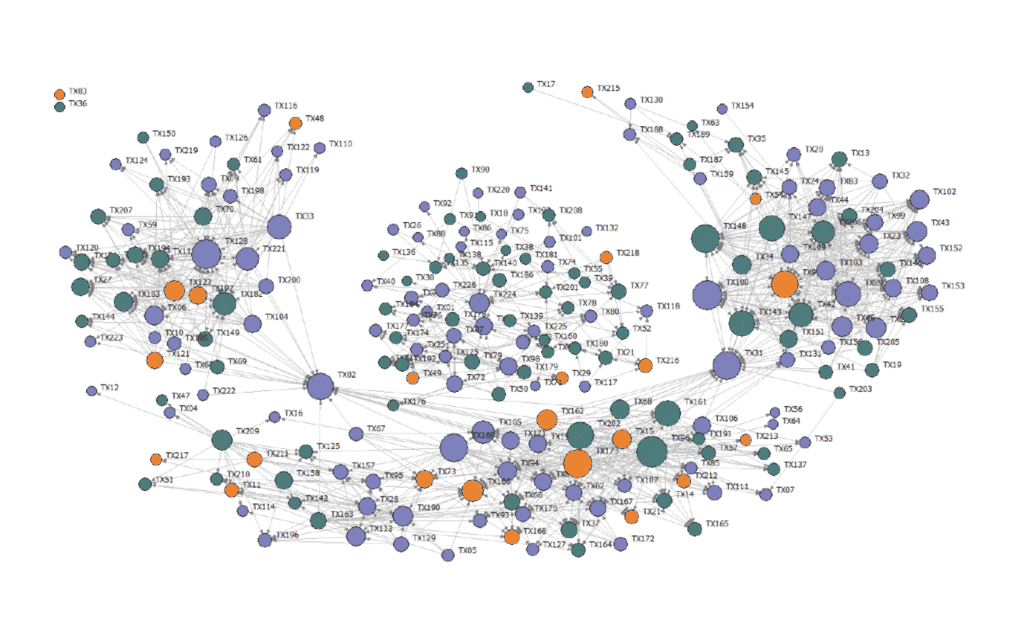Building A Network Strategy to Improve Community Health
County Health Rankings and Roadmaps used the PARTNER CPRM to build a strategy that would allow them to leverage their partnerships more effectively and increase their impact.
Case Study Executive Summary

County Health Rankings & Roadmaps needed to understand how a network approach could help them disseminate data & best practices to improve health outcomes. We helped them shift their mindset to think with a network science perspective, supported their building a network strategy, and track their progress using PARTNER. Today, our assistance has been “transformative” in helping them reach communities nationwide and improve health outcomes. Read the full Case Study below.
CHR&R Needed to Leverage Networks to Improve Health Outcomes
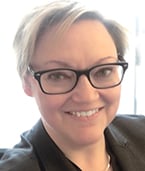
Kate Kingery, Deputy Director of Community Transformation
County Health Rankings & Roadmaps (CHR&R) is a collaboration between the Robert Wood Johnson Foundation and the University of Wisconsin Population Health Institute. They’re working to improve healthcare outcomes and reduce care gap disparities by disseminating information and best practices nationwide to those working in the field. They do this in four main ways:
- Building awareness of the multiple factors that influence health.
- Providing a reliable, sustainable source of local data and evidence to communities to help them identify opportunities to improve their health.
- Engaging and activating local leaders from many sectors in creating sustainable community change.
- Connecting & empowering community leaders working to improve health.
While CHR&R does not lead networks themselves, their work brings them into contact with networked organizations around the country. Several years ago, they realized there was an opportunity to leverage the formal and informal networks they worked with to disseminate information and advance their mission. However they needed to understand how they could use a network approach to reach their goals: sharing critically important data and best practices to improve healthcare outcomes. We partnered with their team to find a solution and build their team’s network leadership capacity together.

Building a Network Strategy and Network Leadership Capacity
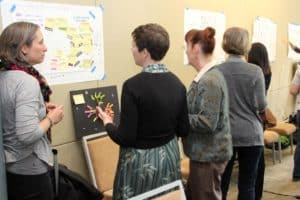
With our support, the CHR&R team explored various network science principles and learned about the various ways networks of partners can be linked to and leveraged to share information. We walked through what it means to network strategically, and what metrics could help them apply this way of thinking to their work.
This process culminated in a two-day, in-person retreat led by our staff and facilitators. We worked with their team to apply what they’d learned. We identified the network insights and foundation needed to start building a network strategy for implementation, the second step in PARTNER. Our team worked with them to develop that strategy and approach, and helped create a survey to track their progress using our Community Partner Relationship Management System, PARTNER.

Leveraging Network Data & Building a Network Strategy to Inform Practice
We also supported CHR&R by organizing and sharing network data at the state level for ten high priority areas. Collected through past PARTNER evaluations, each report listed the networks and collaboratives engaged in health-related work in each state, as well as descriptive measures of their structure & interconnections and other important metrics like the quality of connections, resources being shared, and the degree of agreement among members. This collection of network data allowed CHR&R to understand the network ecosystem in the states they’re focusing on and better leverage existing networks to improve health outcomes.
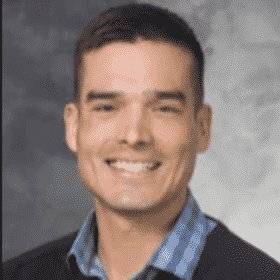
The Results for CHR&R Today
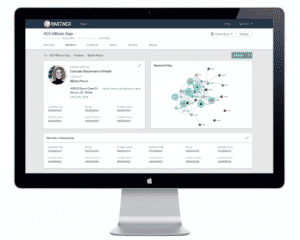
Today, CHR&R is beginning to track and adapt their strategy using PARTNER to make more effective decisions. With their network strategy in hand, they’re thinking carefully about who they partner with and how they structure their relationships. Rather than using a “more is better” scattershot approach, they’re building the least number of connections necessary to improve health outcomes, saving the team time and resources that can be re-invested in improving health outcomes. Without the critical first step of shifting their mindset to view the situation with a network science perspective, and their work developing network leadership capacity, they might still be struggling to effectively leverage their network.
Interested in building a network strategy for your coalition or collaborative of partners? Contact our team to see how we can help you shift your network mindset, design a network strategy, and start tracking and adapting it for the future with PARTNER.
Connect with our Team!
Contact the VNL team to demo PARTNER™ or discuss a research or evaluation project. We can help you learn more about our services, help brainstorm project designs, and provide a custom scope based on your budget and needs. We look forward to connecting!
Email our team: hello@visiblenetworklabs.com
Send a message: Contact Us Here
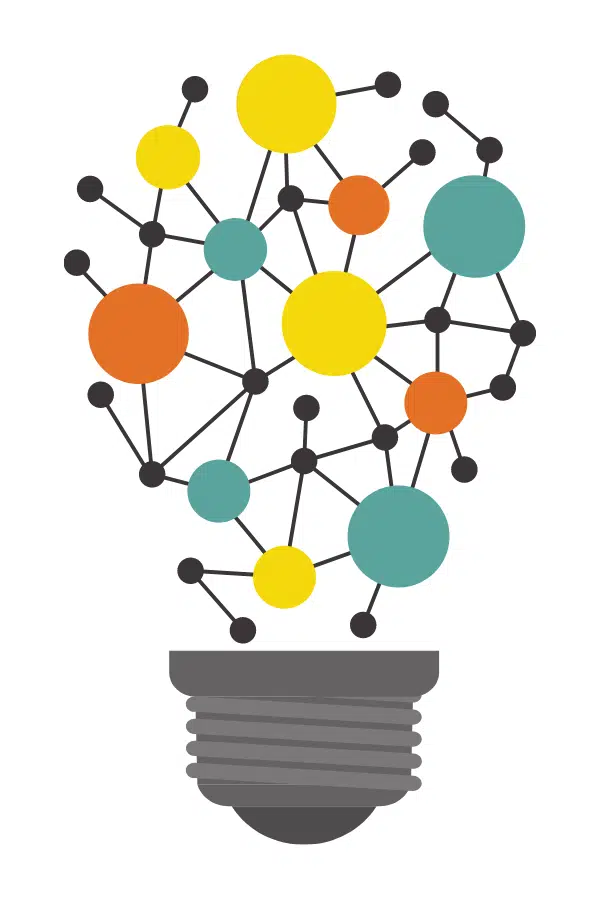
More VNL Case Studies

Evaluating The Growth & Impact of Community Partnerships
The Mile High Health Alliance used the PARTNER CPRM to demonstrate the impact of their relationship-building efforts in the Denver area to funders and community stakeholders. Learn more > Case Study Executive Summary The Mile High Health Alliance works to coordinate health and human services
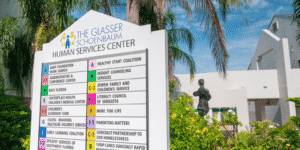
Visualizing A Network of Partnerships & Demonstrating Shared Impact
Learn more > Case Study Executive Summary The Glasser/Schoenbaum Human Services Center needed a way to demonstrate their collaboration to donors, and identify how their partners were working together to serve patients. They created a PARTNER Evaluation project with our assistance to measure what matters

Building a Network Strategy to Improve Childhood Outcomes
The Colorado Early Childhood Council Leadership Alliance worked with us and several community partners to evaluate and visualize twelve councils to inform their strategy for the future. Learn more > Case Study Executive Summary Early Childhood Councils play an important role in the Colorado early
